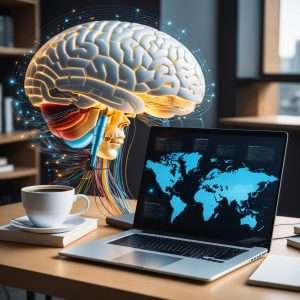Zombie Bunny is Reader-supported and may earn an affiliate commission through links on our site.
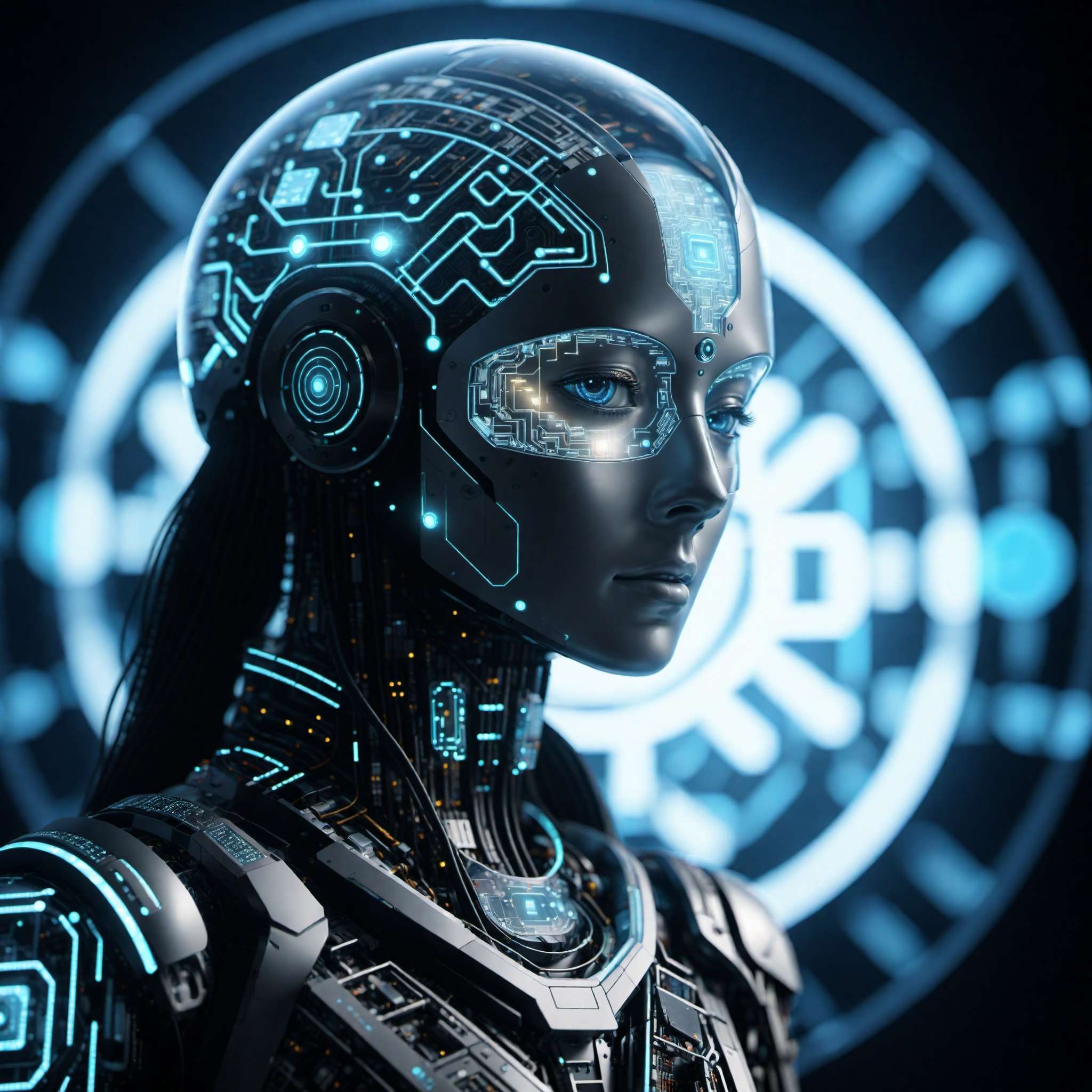
Deciphering AI and Augmented Intelligence: The Game Changers
Explore the emerging world of AI and Augmented Intelligence, two revolutionary technologies reshaping industries and transforming the future.
Dive into the fascinating world of Artificial Intelligence (AI) and Augmented Intelligence, two game-changing technologies revolutionizing industries, transforming economies, and reshaping society. Learn how AI mimics and often surpasses human intelligence capabilities, automating tasks and analyzing vast data sets, while Augmented Intelligence works symbiotically with human inputs, enhancing decision-making capabilities and fostering innovation. From healthcare to finance, education to retail, discover the profound impact these technologies have on various sectors and how they’re redefining the future. Understand the distinct roles of AI and Augmented Intelligence, their advantages, challenges, and future prospects in our increasingly digital, data-driven world.
Introduction: The Rise of a New Era
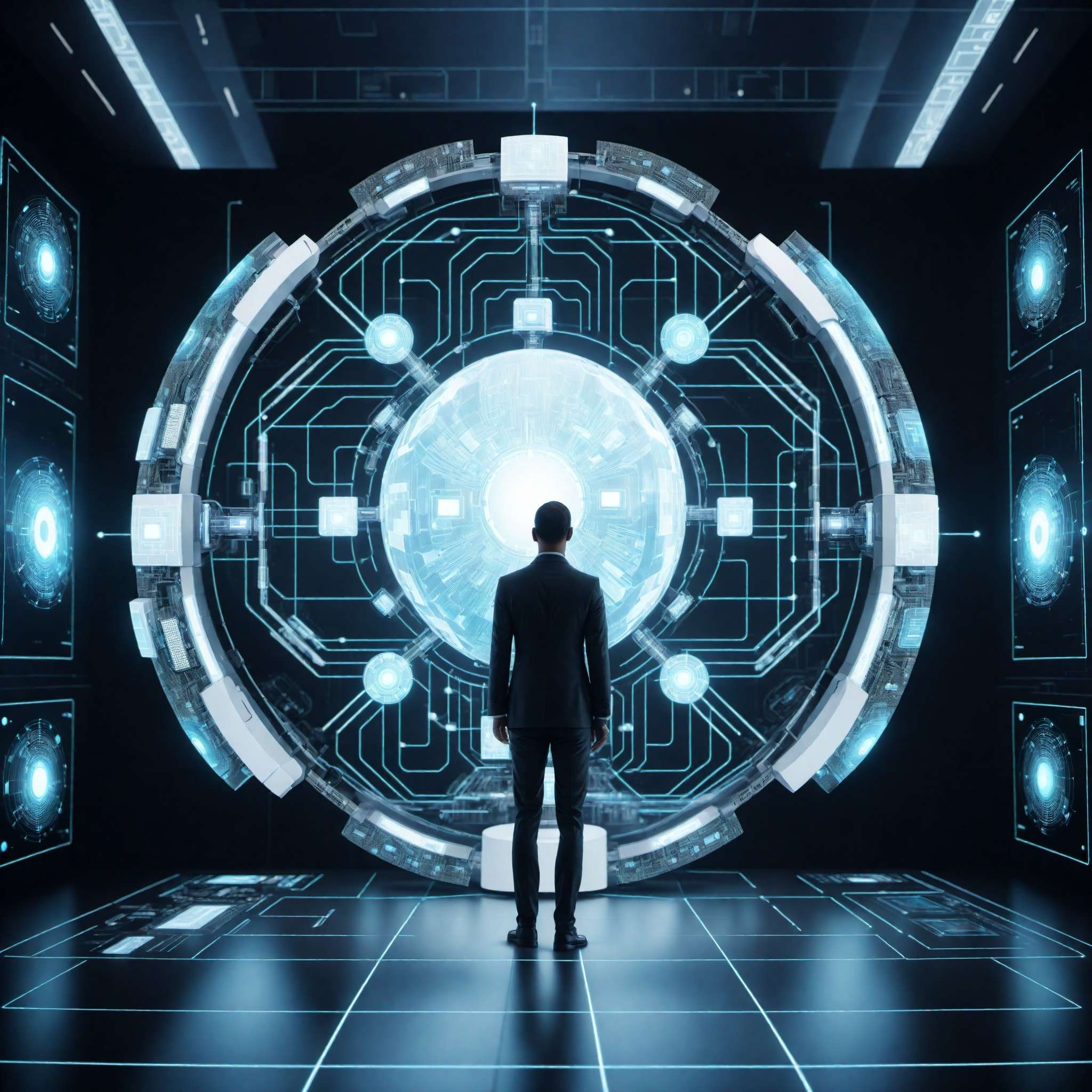
© Copyright , ZombieBunny.Org
Understanding the Concept of AI and Augmented Intelligence
Artificial Intelligence (AI) and Augmented Intelligence represent two distinct but interconnected corners in the world of advanced technology. AI, in its essence, refers to the simulation of human intelligence processes by machines, especially computer systems. These processes include learning, reasoning, and self-correction. AI uses algorithms and computational models to perform tasks which normally require human intelligence, such as visual perception, speech recognition, and decision-making.
On the other hand, Augmented Intelligence emphasizes the enhancement of human intelligence rather than replacing it. It focuses on AI’s assistive role, emphasizing the fact that cognitive technology is designed to enhance human decision-making capabilities. Augmented Intelligence is about creating systems that learn from human inputs, thus amplifying human cognition and decision-making. While AI seeks to simulate or mimic human intelligence, Augmented Intelligence aims to boost and complement it. Together, they are reshaping our world, underlining them as the game changers of the digital era.
The Emergence and Evolution of AI and Augmented Intelligence
The journey of Artificial Intelligence (AI) and Augmented Intelligence began as an ambitious attempt to replicate human intelligence. AI, with its roots traced back to the mid-20th century, has come a long way from simple rule-based systems to complex neural networks capable of deep learning. The evolution of AI has been marked by significant milestones, including the development of machine learning and the advent of neural networks.
Similarly, Augmented Intelligence emerged as a nuanced approach to AI, focusing on enhancing human intelligence rather than replacing it. Over the years, Augmented Intelligence has evolved to encompass sophisticated systems that learn from human inputs, thereby amplifying human cognition and decision-making. Both AI and Augmented Intelligence have seen substantial growth and evolution, driving significant transformations across industries and society at large. Their emergence and evolution underline their role as game changers in this digital era.
The Impact of AI and Augmented Intelligence on Various Industries
The impact of Artificial Intelligence (AI) and Augmented Intelligence is being felt across various industries, leading to remarkable transformations. In the healthcare sector, AI algorithms are being used for early disease detection and predictive analytics, while Augmented Intelligence enhances diagnostics and treatment plans. In finance, AI is pivotal in fraud detection and risk management, whereas Augmented Intelligence aids in informed decision-making.
The retail industry leverages AI for personalized marketing and inventory management, while Augmented Intelligence enhances customer experiences. In manufacturing, AI improves efficiency with predictive maintenance and process automation, while Augmented Intelligence aids in complex problem-solving. From transportation to entertainment to education, the influence of AI and Augmented Intelligence is pervasive.
These technologies are not just changing the way industries operate but are redefining their very future. The widespread impact of AI and Augmented Intelligence across various industries underscores their role as the game changers of the digital era.
Section 1: Deciphering AI: More Than Just Robots

© Copyright , ZombieBunny.Org
An In-depth Look at the Capabilities of AI
Artificial Intelligence (AI) is much more than just robots or autonomous machines. It encompasses a wide array of capabilities that extend beyond our conventional understanding. AI is capable of learning from experience using machine learning algorithms, enabling it to improve its performance over time. It can recognize patterns in vast amounts of data, making it an invaluable tool for data analysis and predictive modeling.
Furthermore, AI can understand natural language, enabling it to interact with humans in a more natural and intuitive manner. It can even make decisions based on complex algorithms, often surpassing human capabilities in certain tasks. From image and speech recognition to autonomous vehicles and advanced robotics, the capabilities of AI are vast and continually evolving.
AI’s capabilities are driving unprecedented changes across various industries, underlining its role as a game changer in our increasingly digital world.
The Crucial Role of Data in AI
Data plays a pivotal role in the functioning of Artificial Intelligence (AI). It is the fuel that drives AI models and enables them to learn, predict, and make decisions. AI algorithms require vast amounts of data to learn and improve. They analyze this data to identify patterns, trends, and relationships that can be used to make predictions or decisions without being explicitly programmed to do so.
In essence, the more data an AI model has, the better it can learn and the more accurate its predictions will be. This is why data is often referred to as the ‘new oil’ in the digital era. However, it’s not just about quantity; the quality of data is equally important. Good quality data can significantly enhance the effectiveness and accuracy of AI models. The crucial role of data in AI underscores its importance in our increasingly digital and data-driven world.
How AI is Changing the Way We Work and Live
Artificial Intelligence (AI) is reshaping our lives and workplaces in profound ways. In our daily lives, AI is at work when we ask Siri for directions, when Netflix recommends a movie, or when Amazon suggests a product. It’s changing how we shop, communicate, learn, and entertain ourselves.
In the workplace, AI is revolutionizing how we perform tasks and make decisions. It’s being used to automate mundane tasks, freeing up time for more complex and creative tasks. AI algorithms are used to analyze vast amounts of data, providing insights that can inform strategic decisions. They are also being used to predict trends, enabling businesses to stay ahead of the curve.
Furthermore, AI is changing the nature of many jobs and paving the way for new roles and industries. The transformative impact of AI on how we work and live underscores its role as a game changer in the digital era.
Section 2: Augmented Intelligence: Enhancing Human Capabilities
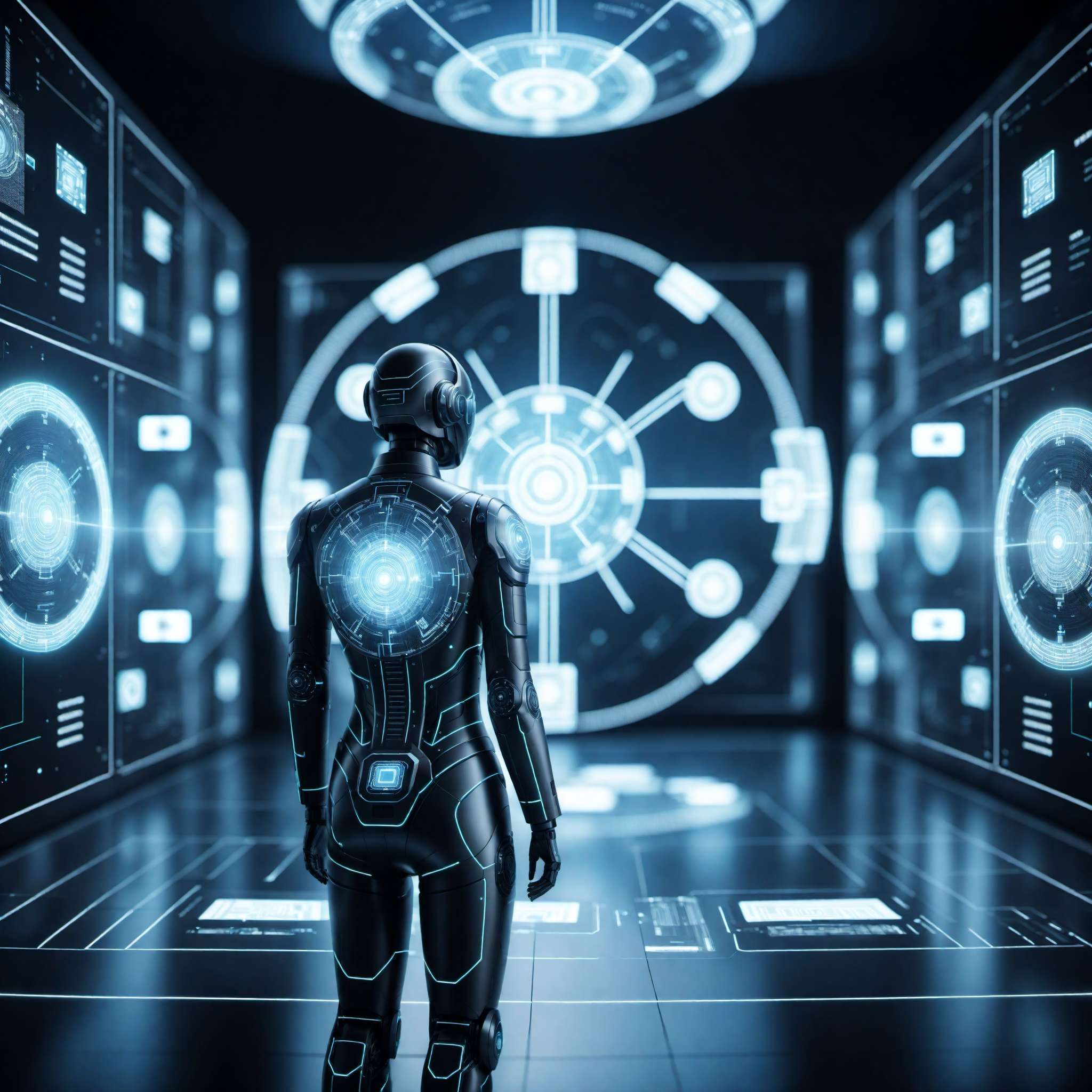
© Copyright , ZombieBunny.Org
Demystifying the Concept of Augmented Intelligence
Augmented Intelligence is a facet of Artificial Intelligence that focuses on human intelligence’s enhancement. Unlike some AI models aiming to replace human intelligence, Augmented Intelligence seeks to amplify it. This approach emphasizes human-machine collaboration and symbiosis, where machines learn from and enhance human capabilities.
Augmented Intelligence is about creating systems that learn from and integrate human inputs. These systems analyze large volumes of data, recognize patterns, and generate insights that assist humans in decision-making. Whether it’s a physician making a diagnosis, a financial analyst predicting market trends, or a marketer strategizing a campaign, Augmented Intelligence can provide valuable insights to enhance their decision-making process.
By magnifying human intelligence, Augmented Intelligence allows humans to do what they do best—innovate, strategize, and create—while machines handle data analysis and repetitive tasks. By demystifying this concept, we can better appreciate its role as a game-changer in our increasingly digital world.
The Role of Augmented Intelligence in Enhancing Human Capabilities
Augmented Intelligence plays a significant role in enhancing human capabilities in numerous ways. By leveraging AI’s analytical capabilities, it enables humans to make more informed and effective decisions. Augmented Intelligence can sift through vast amounts of data, identify patterns, and generate insights, allowing humans to make decisions based on data-driven evidence.
Moreover, Augmented Intelligence can take over mundane and repetitive tasks, freeing up humans to focus on more complex, creative, and strategic tasks. This not only enhances human productivity and efficiency but also allows for more innovation and creativity.
Augmented Intelligence also plays a crucial role in enhancing human capabilities by providing personalized and adaptive learning experiences. By understanding individual learning patterns and preferences, it can deliver personalized content, enhancing learning outcomes.
The role of Augmented Intelligence in enhancing human capabilities underlines its importance as a game changer in our increasingly digital and AI-driven world.
Real-World Applications of Augmented Intelligence
The applications of Augmented Intelligence in the real world are vast and diverse. In healthcare, Augmented Intelligence is used to analyze patient data, medical records, and research, assisting doctors in diagnosis and treatment decisions. In finance, it helps analysts to process large volumes of financial data, identify trends, and make informed investment decisions.
In education, Augmented Intelligence is used to create personalized learning experiences, adapting content to individual learning styles and speeds. In the retail sector, it helps in analyzing customer behavior patterns, personalizing customer experiences, and predicting future trends.
In the manufacturing sector, Augmented Intelligence assists in complex decision-making processes, improving efficiency and productivity. In the realm of cybersecurity, it helps in detecting and preventing potential threats.
These real-world applications of Augmented Intelligence underscore its immense potential and its role as a game changer in our increasingly digital world.
Section 3: AI vs Augmented Intelligence: A Comparative Analysis
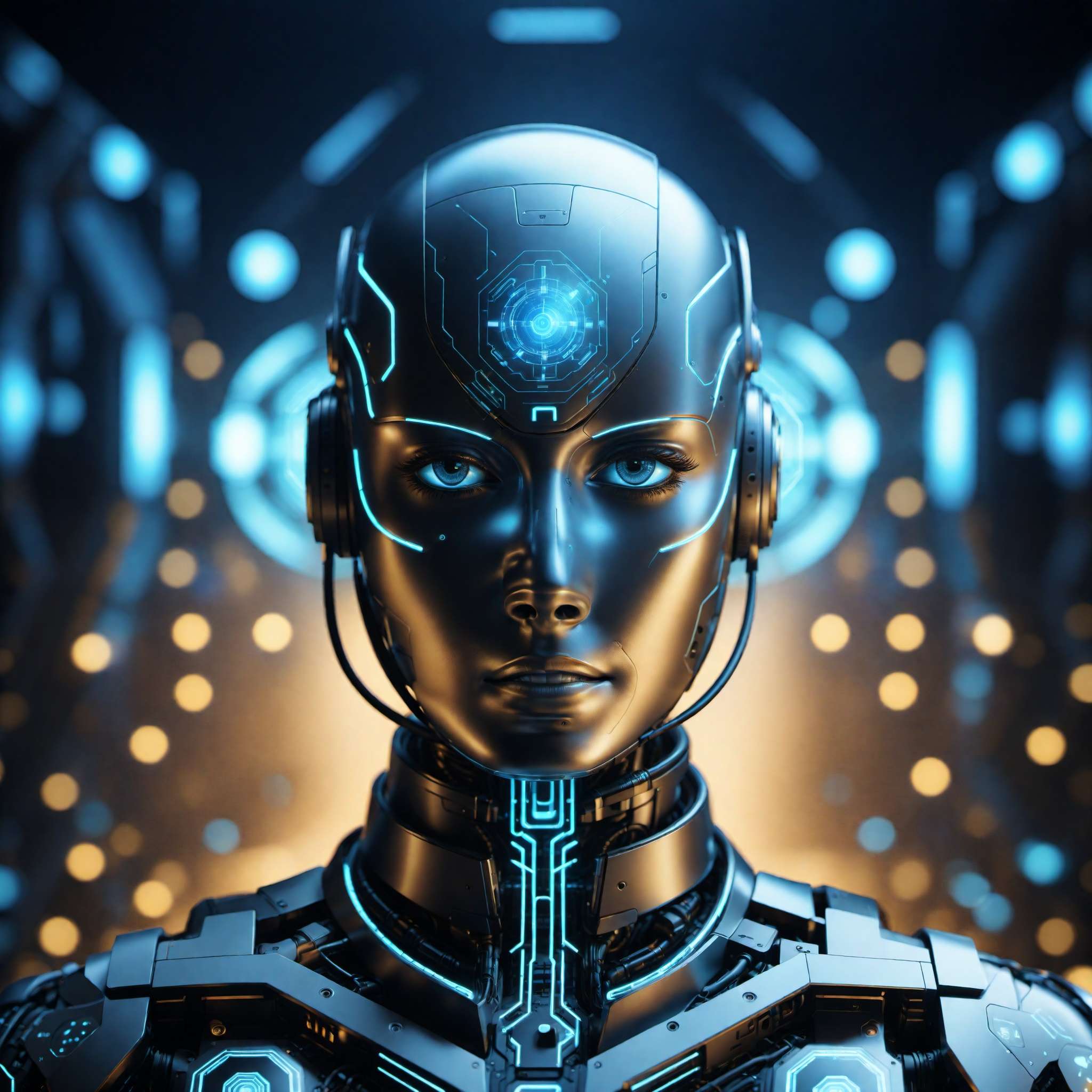
© Copyright , ZombieBunny.Org
The Similarities and Differences between AI and Augmented Intelligence
Artificial Intelligence (AI) and Augmented Intelligence, while related, have distinct differences and similarities. Both leverage advanced algorithms and machine learning to analyze data, identify patterns, and make predictions. Both are transformative technologies that are reshaping industries and society.
However, they differ significantly in their approach to human intelligence. AI, in some aspects, aims to replicate or even surpass human intelligence, automating tasks that require human-like thinking. It often works independently of human intervention.
Conversely, Augmented Intelligence focuses on enhancing human intelligence, working in harmony with human inputs. It doesn’t aim to replace humans but to assist them, augmenting their decision-making capabilities with data-driven insights.
In essence, while AI might excel in tasks like data analysis and pattern recognition, Augmented Intelligence shines in contexts that require human judgment enhanced by machine-provided insights. Understanding these similarities and differences can help us appreciate their unique roles as game-changers in the digital era.
The Pros and Cons of AI and Augmented Intelligence
Both Artificial Intelligence (AI) and Augmented Intelligence come with their set of advantages and challenges. AI’s benefits include automation of repetitive tasks, high speed and accuracy, and the ability to analyze large data sets. However, its drawbacks include the potential for job displacement, privacy concerns, and the risk of dependence on AI systems.
On the other hand, Augmented Intelligence enhances human decision-making, promotes personalized experiences, and encourages innovation by freeing up time for creative tasks. It also fosters a human-centric approach to AI. However, its challenges include the need for high-quality data, potential user resistance due to changes in work processes, and the requirement for continual learning and adaptation as the systems evolve.
Understanding these pros and cons can help businesses, individuals, and society at large to make informed decisions about the adoption and application of these game-changing technologies.
The Future of AI and Augmented Intelligence: What to Expect?
The future of Artificial Intelligence (AI) and Augmented Intelligence is promising and exciting. As technology and data sources continue to expand, we can expect these technologies to become increasingly sophisticated and integrated into our daily lives and work.
AI is likely to become more autonomous, capable of more complex tasks, and more integrated into systems and processes. We can expect advancements in areas like natural language processing, autonomous vehicles, and predictive analytics. However, ethical and regulatory considerations will be critical in shaping AI’s future.
Augmented Intelligence, on the other hand, will continue to focus on enhancing human capabilities. We can anticipate more personalized and adaptive systems, more intuitive interfaces, and more seamless integration of human and machine intelligence. The future will likely see Augmented Intelligence playing a crucial role in decision-making across various fields, from healthcare to finance to education.
The future of AI and Augmented Intelligence underscores their potential as true game changers in the digital era.
Conclusion: The Game Changers of the Digital Era
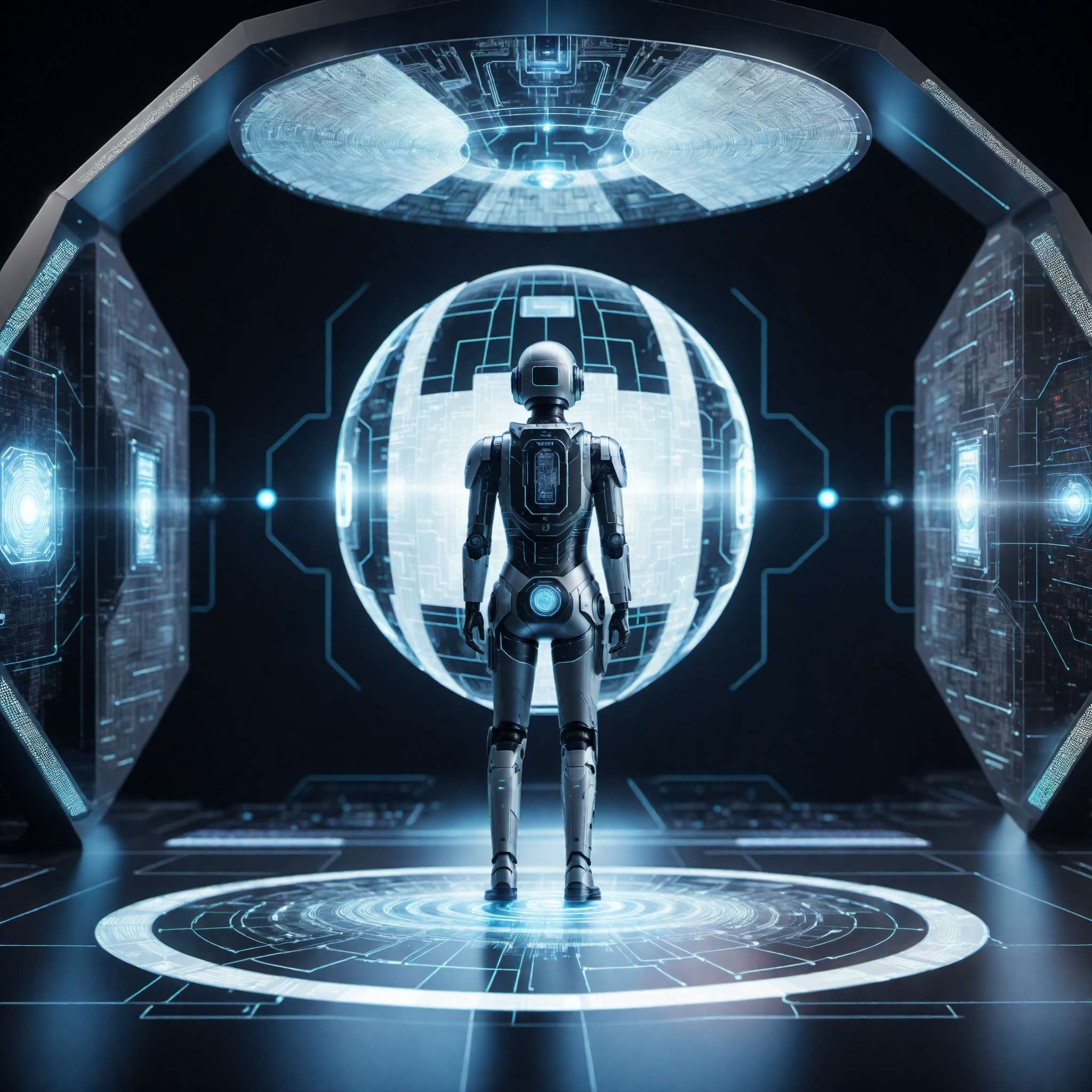
© Copyright , ZombieBunny.Org
The Impact and Influence of AI and Augmented Intelligence
Artificial Intelligence (AI) and Augmented Intelligence have a profound impact and influence on various aspects of our lives and work. By automating tasks, analyzing vast amounts of data, and enhancing human decision-making, these technologies are reshaping industries, economies, and societies.
Their impact can be seen in healthcare, where they assist in diagnosis and treatment; in finance, where they aid in risk assessment and fraud detection; in education, where they provide personalized learning experiences; and in many more sectors. They are not only changing how we work, live, and interact but also redefining the future of these spheres.
The influence of AI and Augmented Intelligence is also evident in the new opportunities and challenges they present. From ethical considerations to job displacement to new roles and industries, these technologies are influencing the discourse on technology, work, and society. Their impact and influence underscore their role as the game changers of the digital era.
The Role of AI and Augmented Intelligence as Game Changers
Artificial Intelligence (AI) and Augmented Intelligence are game changers in the truest sense. They are revolutionizing the way we work, learn, interact, and live. They are transforming industries, disrupting traditional business models, and creating new opportunities.
As game changers, AI and Augmented Intelligence are redefining the boundaries of what is possible. They are driving innovation, enhancing productivity, and facilitating the creation of new products, services, and experiences. They are helping us make sense of vast amounts of data, make more informed decisions, and solve complex problems.
Moreover, as game changers, they are influencing societal and economic trends, shaping the future of work, education, healthcare, and more. They are at the forefront of the fourth industrial revolution, leading the charge towards a more digital, data-driven, and AI-powered world. Their role as game changers underscores their significance and potential in our increasingly interconnected and digital world.
The Future Prospects of AI and Augmented Intelligence
The future prospects of Artificial Intelligence (AI) and Augmented Intelligence are incredibly vast and exciting. As these technologies continue to evolve, we can expect to see more advanced capabilities, more innovative applications, and more transformative impacts.
In the realm of AI, we can anticipate advancements in machine learning, deep learning, and neural networks, enabling AI systems to become more autonomous and capable. We can also expect AI to become more integrated into our daily lives and workplaces, transforming how we live and work.
In the context of Augmented Intelligence, the future holds the promise of more personalized, adaptive, and intuitive systems. These systems will continue to enhance human decision-making, creativity, and productivity, while fostering a more seamless and symbiotic relationship between humans and machines.
The future prospects of AI and Augmented Intelligence reinforce their potential and their role as the game changers of the digital era.
Please support our site and purchase something from our store.



